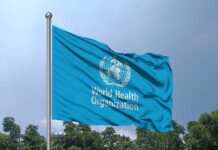
Scientists have discovered a bacterial toxin that may explain why colorectal cancer rates are skyrocketing among young adults, potentially transforming how we understand, prevent, and treat this increasingly common disease.
At a Glance
- A groundbreaking study links early childhood exposure to colibactin, a bacterial toxin produced by certain E. coli strains, to rising colorectal cancer cases in adults under 50
- Over 50% of colorectal tumors in patients under 40 showed evidence of colibactin exposure, compared to less than 10% in older patients
- Individuals with colibactin-related DNA mutations are 3.3 times more likely to develop early-onset colorectal cancer
- The study analyzed 981 colorectal cancer genomes from patients across 11 countries, providing strong evidence that early-life bacterial exposure may trigger cancer decades later
- If current trends continue, colorectal cancer could become the leading cause of cancer death among young adults by 2030
The Bacterial Connection to Early-Onset Colorectal Cancer
Colorectal cancer cases have doubled among adults under 50 in the past two decades, leaving researchers scrambling to understand why. Now, a major international study published in Nature on April 23, 2025, and funded by Cancer Research UK, has identified a potential culprit: a bacterial toxin called colibactin. This toxin, produced by certain strains of E. coli bacteria that naturally reside in the human gut, appears to create distinctive patterns of DNA damage in colon cells that can lead to cancer development decades later.
The researchers analyzed 981 colorectal cancer genomes from patients across 11 countries and found that exposure to colibactin is most damaging during the first decade of life. The study revealed that individuals with colibactin-related mutations are 3.3 times more likely to develop colorectal cancer before age 50. These mutations account for approximately 15% of early genetic alterations that increase cancer risk, with the mutations appearing to accumulate primarily during childhood.
Colon Cancer the #1 cause of death for people aged 20-49 in the US by 2030?
A new report released today and dated 3-16-25 from Science Magazine (link: https://t.co/xqjMM7MBZU) predicts that by 2030, colon cancer will be the #1 cause of cancer death for people aged 20-49 in the…
— Dr. Ray Wisniewski (@DrRayW) March 3, 2025
Striking Age Differences in Cancer Signatures
Perhaps the most compelling evidence linking colibactin to early-onset colorectal cancer is the stark contrast between age groups. “We detected the mutational signature of colibactin in over 50% of colorectal tumors from patients under 40, compared to less than 10% in tumors from older individuals,” explained study senior author Ludmil Alexandrov of the University of California San Diego. This dramatic difference suggests that whatever is causing increased colibactin exposure in younger generations began relatively recently.
In the US and UK, approximately 30-40% of children have colibactin-producing E. coli in their bowels. The study found geographic variations in mutation patterns, with countries like Argentina, Brazil, Colombia, Russia, and Thailand showing increased mutational signatures, indicating possible local environmental factors at play.
Understanding the Rise in Young Adult Cases
The global increase in early-onset colorectal cancer has puzzled medical experts for years. Countries including England, New Zealand, Puerto Rico, and Chile have all reported significant increases in young adults with bowel cancer. Previously, researchers had focused on factors like obesity, processed foods, and physical inactivity as potential causes. While these lifestyle factors remain important, the discovery of colibactin’s role adds a crucial new dimension.
Factors that may influence bacterial behavior and colibactin production include birth method, breastfeeding practices, antibiotic use, nutrition, and other environmental exposures during childhood. Several studies have already linked early-life antibiotic use to increased colorectal cancer risk, possibly by disrupting the natural balance of gut bacteria and potentially allowing toxin-producing strains to flourish.
Implications for Prevention and Treatment
While the study provides compelling evidence linking colibactin exposure to early-onset colorectal cancer, researchers caution that they have not yet proven direct causation. However, the findings open exciting new avenues for prevention strategies and treatments. If confirmed through additional research, screening for colibactin-producing bacteria or developing methods to neutralize the toxin could potentially prevent thousands of cancer cases.
The study reminds us that more than half of colorectal cancers are preventable through lifestyle modifications. A diet rich in fiber, limited in processed meats, maintaining a healthy weight, limiting alcohol consumption, and staying physically active remain critical strategies for reducing colorectal cancer risk at any age. These findings may ultimately lead to targeted, region-specific prevention strategies that address both lifestyle factors and the bacterial environment of the gut.


















